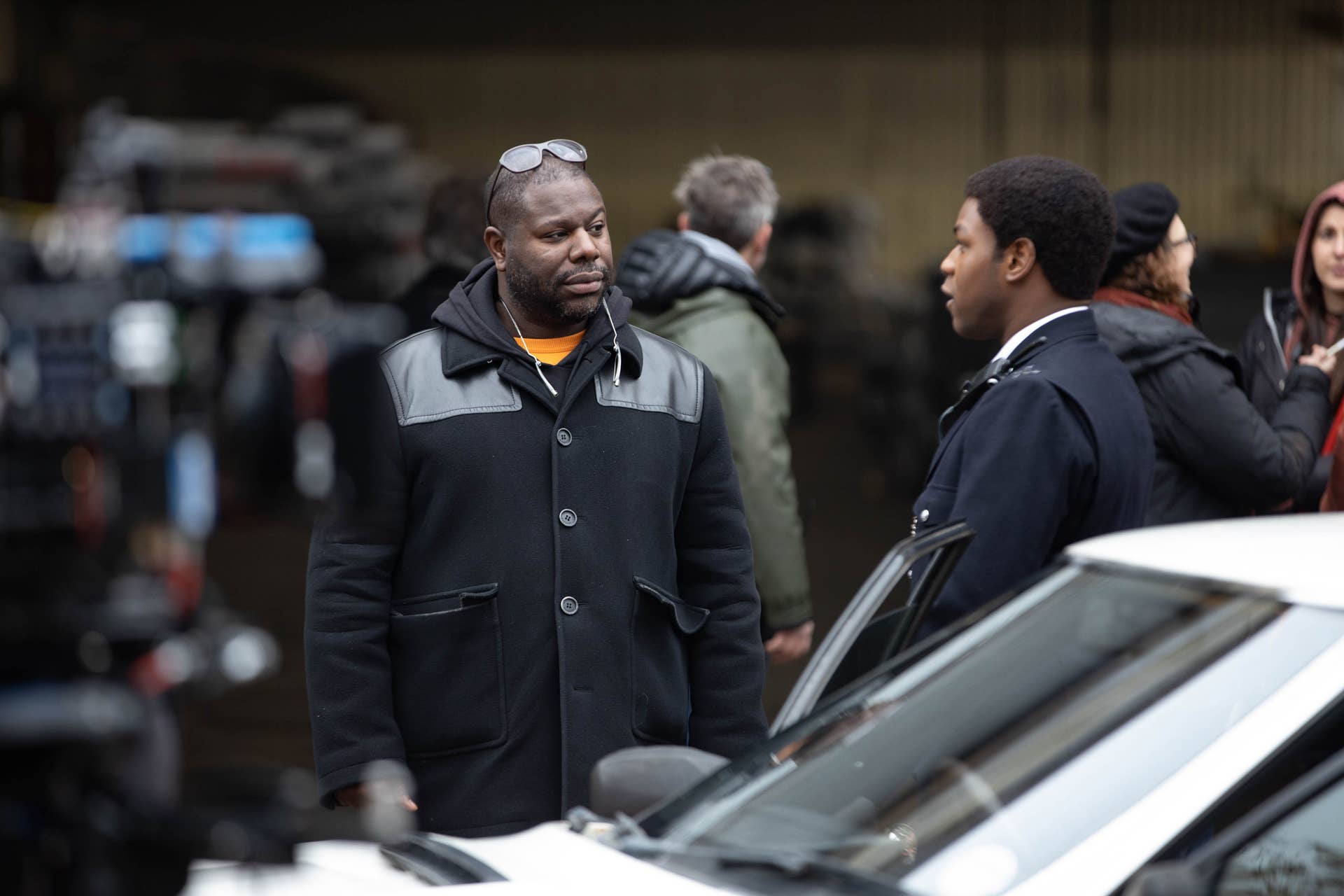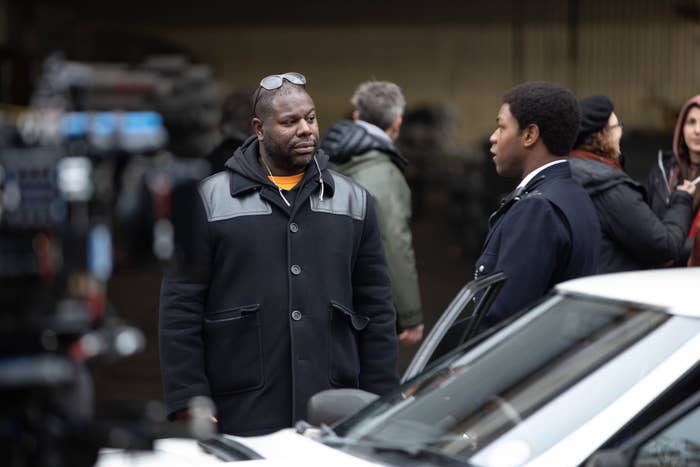
When you watch Steve McQueen’s five-part anthology series Small Axe on Amazon Prime, the West Indian experience in London from the late 1960s to mid-1980s will be a conduit for a multitude of the Black experience to be introduced to new eyes. The dancefloor exorcisms to Janet Kay’s 1979 lovers rock hit "Silly Games;” the volcanic uprisings against racist policing; the generational rifts between those raised in Britain and those who did the raising. Pay close attention because these retellings of the past are only historical dramas on the surface.
“For me, these are science fiction pictures. These films are all about the future because they tell us where we’re at, how far we’ve come, and where we need to go,” Academy Award-winning director Steve McQueen told Complex.
Complex previewed three of the five parts: “Mangrove,” “Red, White and Blue,” and “Lovers Rock.” “Mangrove” is centered around the Mangrove Nine, a group of Black British activists who fought against racist attacks on Mangrove Restaurant in Notting Hill, London by the Metropolitan Police from the streets to the courtroom in 1970. “Red, White, and Blue” tells the true story of Leroy Logan (John Boyega), a Black British man who joined the Metropolitan Police in order to improve the relationship between the Black community and the police while struggling to gain acceptance from either group, including his father, the victim of police brutality. “Lovers Rock” is a love story of how fictional characters Martha (Amarah-Jae St. Aubyn) and Franklyn (Micheal Ward) met at a house party in West London in 1980 and the violence and communal rapture on the dancefloor.
More than mere parts of an anthology series, the West London native McQueen says these are forms of cinematic justice in their own right. “It was something I needed to do and something I needed to see. It was a need and a want. These stories were something missing in the narrative of British films. There had been a few films made at the time, particularly [Horace Ové’s 1976 film]Pressure and [Franco Rosso’s]Babylon in 1980. There was a hole in the narrative,” McQueen said. “I wanted to see a missing part of the narrative within the British story. Also, the fact that West Indian people have shaped the British landscape.”
If Small Axe is a collection of science fiction films then they also double as nature films exploring how unnatural human nature can be. Movements are moments, movement is inevitable, and the former was born from the latter in the three films previewed. The racial tension in “Mangrove,” “Lovers Rock,” and “Red, White, and Blue” are the result of racist ideologies fighting against natural progression. Whether it’s a restaurant moving into the neighborhood only serving cuisine exclusively from West Indian culture (“Mangrove”), a Black man moving into a white police institution (“Red, White and Blue”), or a family simply moving into a house (“Lovers Rock”), white people want to go against nature to preserve an unnatural social order.
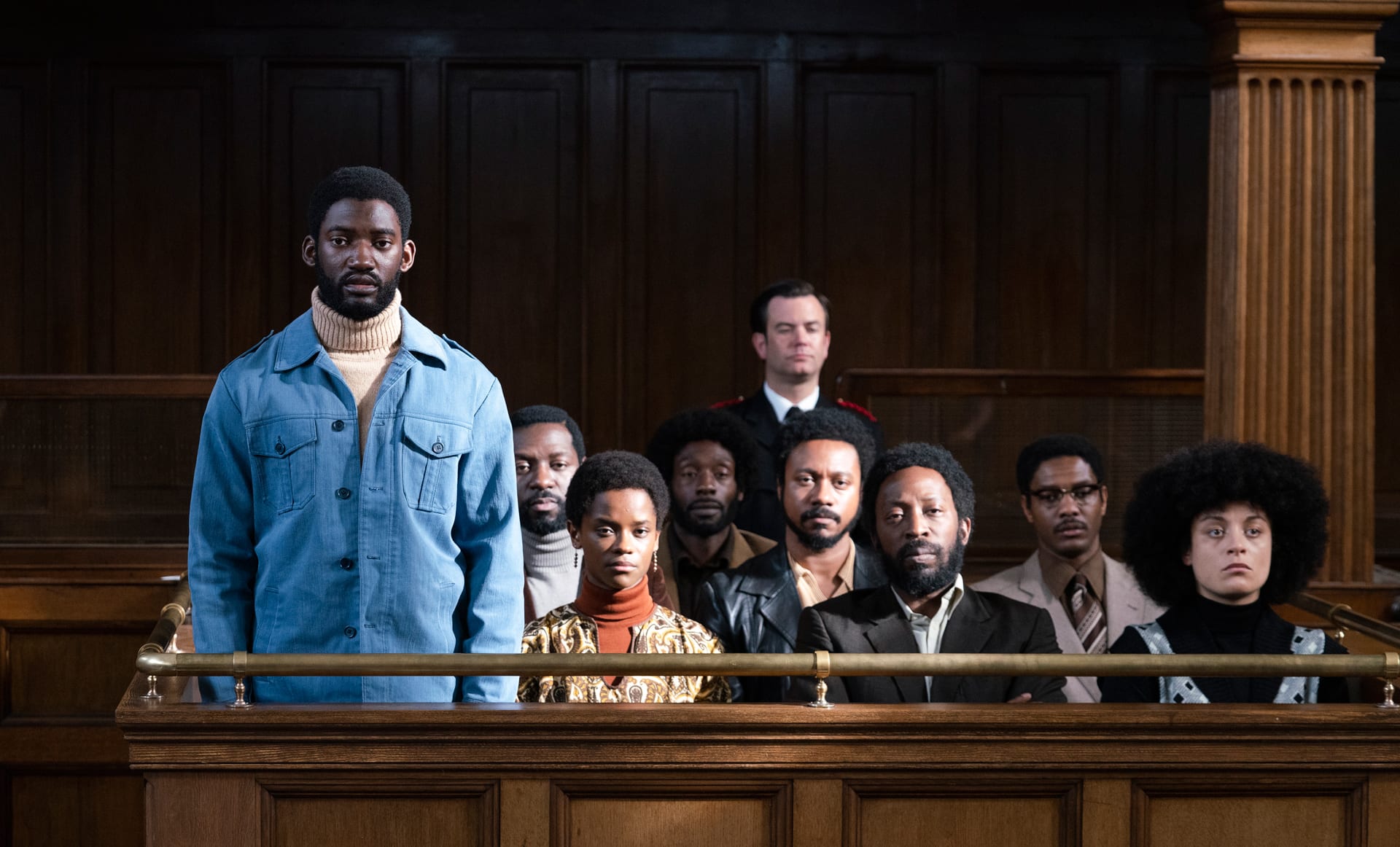
“Mangrove” features numerous shots where the only image on the screen is the vitriolic glare of PC Frank Pulley, the villainous police officer who tried to force the Mangrove into extinction or submission with raids and racist diatribes on Black people staying in their place. The shots were so close and so all-consuming of the screen you could almost see the racism ferment behind his eyes and spill out in a sinister smirk at the sight of Black pain. Rape, brutalized Black faces, and a deluge of tears all serve viscerally gruesome roles in extracting the inhumanity from history.
“I’m interested in the truth. I’m interested in the truth of who we are and the truth of how we treat each other. It’s wonderful when you get to that point. It’s horrific, but to try to have an understanding of what’s going on, one has to get there.”
It’s only under unnatural circumstances of a race of people being hunted in the streets by those in power does a restaurant serving West Indian cuisine become considered the front lines for a proverbial race war. It’s only under unnatural circumstances where a Black child in his school uniform can be searched like a criminal by police is a Black man donning that same police uniform a radical act of change. Humanity is often lost to historical lionization, and the meticulous care McQueen took in immersing viewers in the everyday lives of these symbols of change highlights how only under unnatural circumstances do humans have to become heroes.
“It’s very important because often in our journey there’s a responsibility that comes to you. You need to fulfill that obligation and that role of helping people because that’s where we are,” McQueen said. “Black people are in a situation where, as a collective, we can do so many things. It’s always the ordinary people who become extraordinary and that’s what I wanted to portray.”
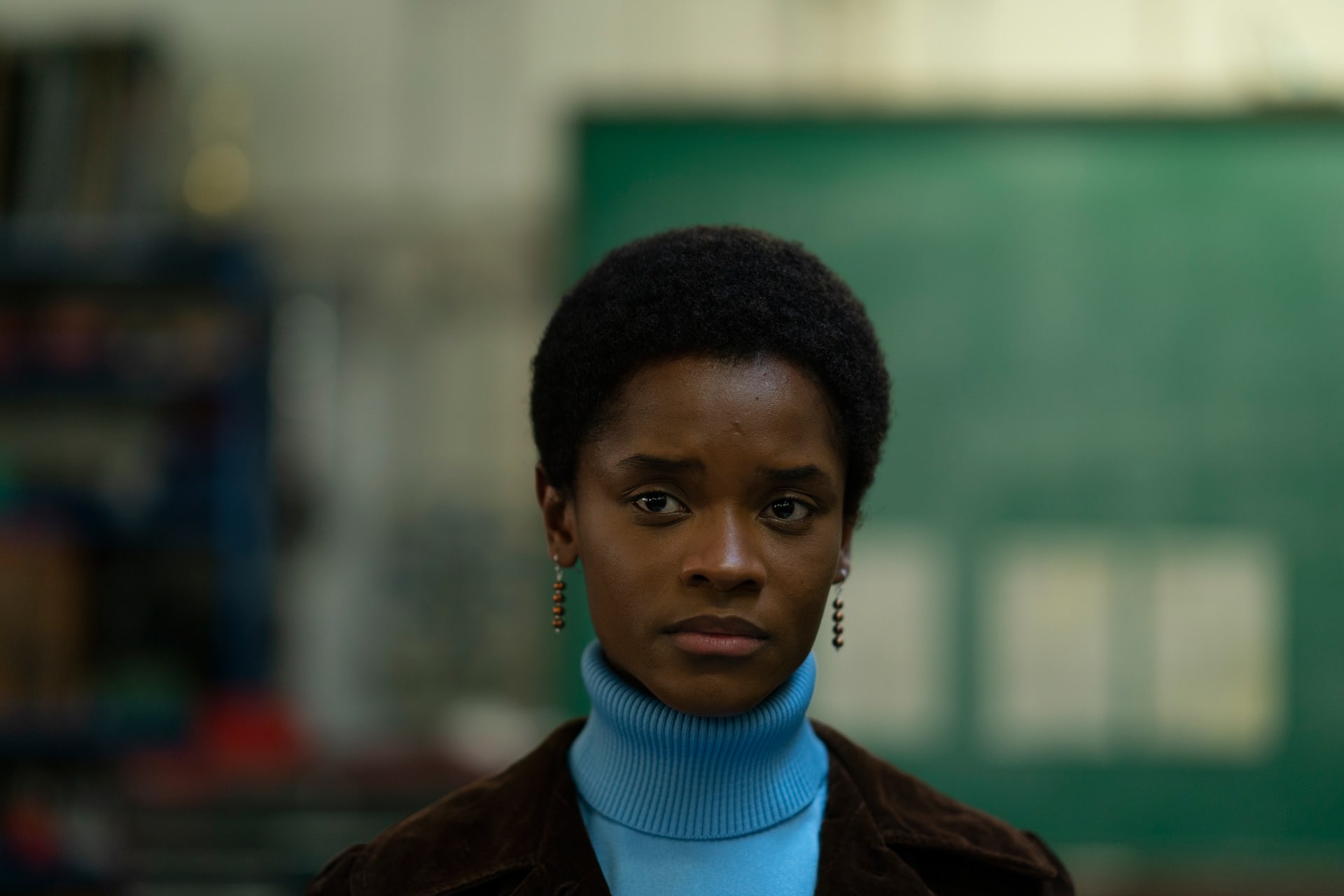
The Mangrove Nine were arrested after a peaceful protest devolved into a street brawl following police provocation. A few represented themselves in court because they couldn’t trust a racist system to protect their lives. They weren’t experts in the law, they were experts in life, and ther best defense was proving how the police department’s retelling of events was incompatible with reality itself. In one harrowing scene, one of the Mangrove Nine, Darcus used a piece of paper with a rectangular hole the size of the car window the police allege they observed the illegal rioting from and simply asked PC Pulley to explain how two police officers could look through a hole big enough for only one set of eyes. At that point, you could basically see the mental gymnastics Pulley was performing in his head on his face’s chagrin before ridiculously landing on the explanation that two officers can look at the same time if each officer looked with only one of their eyes.
In one scene, Altheia Jones-LeCointe, played with dynamic temerity worthy of Oscar attention by Black Panther star Letitia Wright, berates Frank Critchlow’s attorney for advising the Mangrove shop owner to split from the Mangrove Nine and plead guilty. Her teary-eyed angered gaze grabs ahold of Frank’s frustrated stare and questions if abandoning his family by way of skin is worth staving off jail time. Shaun Parkes, who plays Frank, almost retreats to the fatalism beaten into the Black psyche for centuries by the ostensible legal invulnerability of racism. His reason is heartbreaking in its simplicity: White racists aren’t human, they’re vampires that require unnatural and unprecedented means to vanquish.
The emotional weight of a scene such as that is a byproduct of great acting and a respect for history. “The research was done a lot by themselves. I introduced Letitia to Altheia Jones-LeCointe. Shaun [Parkes] actually knew Frank [Critchlow]’s daughter. What we gave them is a lot of readings, interviews, and anything they asked for. We told them to delve Into that period of the late ‘60s/early 70s especially when this MP Enoch Powell gave the River of Blood speech, which was basically setting the temperature so high when he was talking about the streets running with blood because of these immigrants,” McQueen said.
As unnatural as human nature can be, it is cyclical through time, and these Small Axe installments aren’t too divorced from present-day reality. When Leroy informs his best friend Leee John of his plans to join “the force,” John sarcastically asks if he’s planning on being a Jedi. It’s when Leroy clarifies he meant joining the police force that the soft ebullience on Leee’s face hardens into indignation that it becomes apparent that a Black man joining the police force didn’t readily register as a believable reality to Black people in London 30+ years ago. A Black man donning the uniform of oppressors is as natural as him grabbing a lightsaber and waging war among the stars. On a deeper level, Boyega playing a man hired, in large part, to be the face that changes Black people’s opinions of a historically white institution is as applicable in the 1980s as it is now.
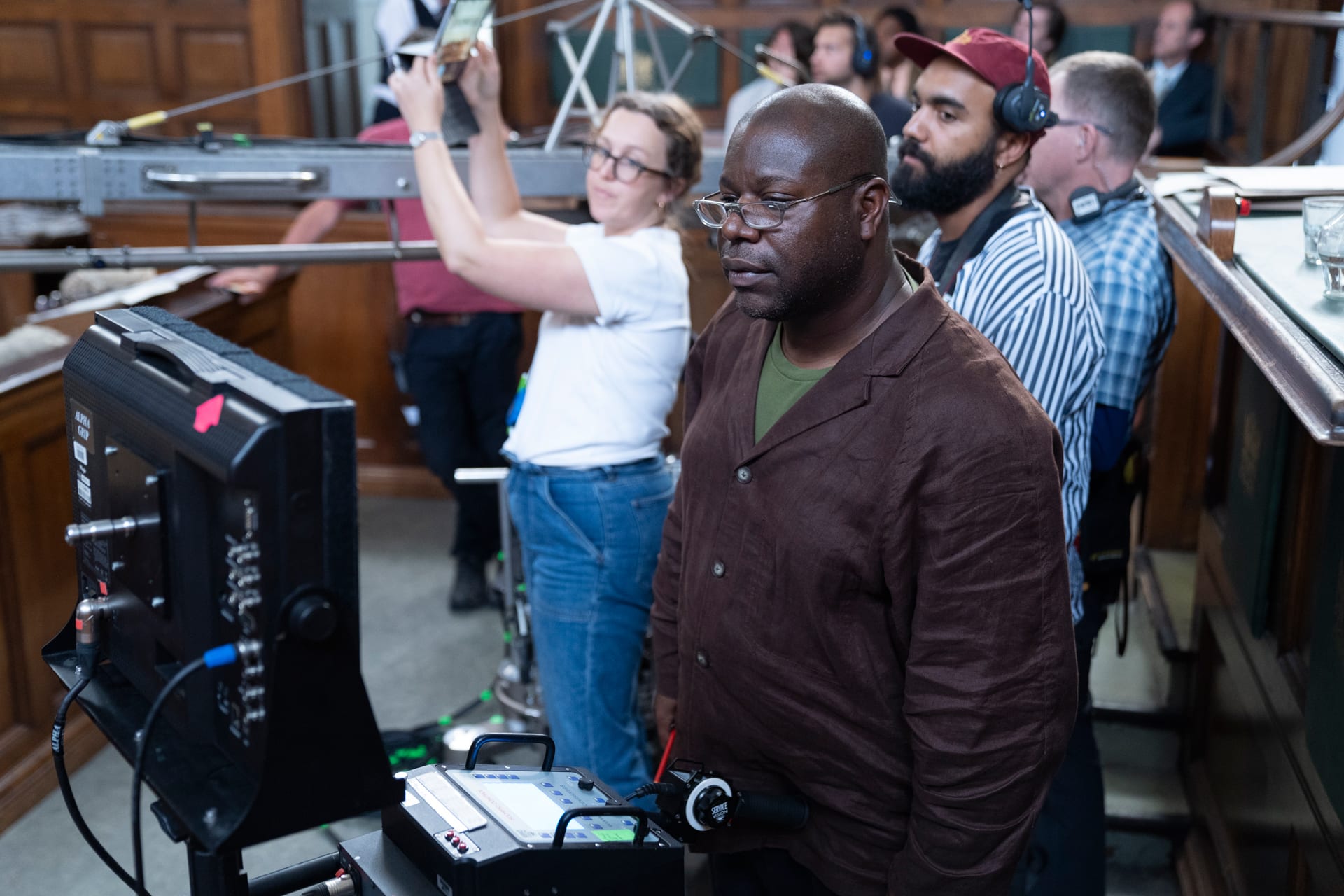
“That was written by Courttia Newland and it was great because what’s happened, unfortunately, with John and that particular franchise parodies what happened with Leroy Logan and the Metropolitan Police: These two men who are literally poster boys don’t get to fulfill their potential in both particular fields.”
McQueen’s “science fiction” excavation of West Indian history in Britain may make commentary on today’s societal issues by virtue of those issues persisting through generations, but McQueen’s not ready to dissect 2020 on film just yet. Just as he’s kept a keen eye on the stories of the past that shaped our present, he’s cognizant of the future stories that can be born from the fertile soil of 2020’s uprisings and hope nature can take its proper course.
“I think what’s a great thing about this year is what young people have been doing about getting on the streets. If there’s anything I would like to focus on in anyway, not necessarily in film, that’s been the biggest thing about this year, for me. I hope we can somehow continue this and it not just be a reaction to something, but can continue and amalgamate into something bigger; a real sort of movement,” McQueen hopes.

